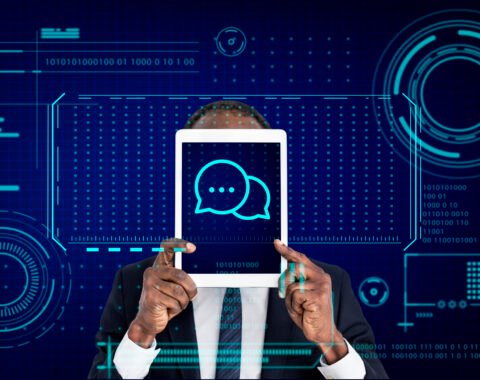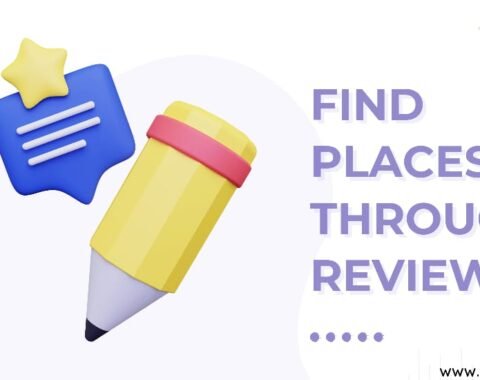Artificial Intelligence or AI is the new buzzword these days. IBM defines AI as:
“It is the science and engineering of making intelligent machines, especially intelligent computer programs. It is related to the similar task of using computers to understand human intelligence, but AI does not have to confine itself to methods that are biologically observable.”
What is interesting is the widespread use of AI in real-life and practical applications. AI is used almost synonymously with advanced technologies these days. From mobile phones to smart devices, AI is used almost everywhere. In this article, we would talk about the application of AI as the most efficient tool for marketers.
Applications of AI
Most marketers, today, leverage the potential of AI to reach their target audience, optimize their strategies, save costs, increase their ROI and provide a better experience to the customers. Some of the areas where AI is used in marketing are:
- Use of AI and smart segmentation to identify the target group
Target group segmentation is a crucial component of all marketing efforts. In the past, marketers used to create a broad aim for themselves, asking questions like, “Do we want a higher degree of awareness, commitment, retention, revenues, or something else?” They then calculated the best target group for the campaign by hand.
Today, AI and Predictive Analytics allow marketers to accurately identify the best target group. The procedure is not only faster and more precise, but it can also aid in the identification of new parts of this group that have similar characteristics. Companies can present a more personalised offer to customers, resulting in a one-of-a-kind, personal bond that would be difficult to accomplish without AI.
- Use AI to provide each segment of a target group with content tailored to its needs
Once the correct target audience has been identified and when and where they can be reached, the next step is to create engaging content. For businesses with thousands of items and hundreds of thousands of clients, AI can assist in determining a number of product recommendations that are tailored to each portion of the target group’s expectations. Customers are introduced to things they are most likely to buy using AI-based product suggestions, which take into account the behaviour of web browser users and product similarities.
AI-based campaigns can feature tailored banner adverts that entice customers to take certain actions in addition to merchandise. The content of your offers or campaigns can be dynamically personalised as the number of data acquired by AI grows.
- Content Strategy and Creation
Artificial intelligence plays an important role in informing content strategy.Content generation is also a part of AI for marketing. Natural language processing, or NLP, is an artificial intelligence (AI) technique that takes data and organises it into a written story that sounds like it was written by a human. NLP can be used to create content ranging from articles and white papers to social media postings, depending on the programme.
- AI-enhanced PPC advertising
AI is also used widely in PPC advertising. Some top of AI applications in PPC include Smart bidding, Micro-moment targeting, Responsive ads, Performance analysis, Dynamic search ads, Price optimization, and Account management.
Benefits of AI in Marketing:
Now that we have seen the type of applications of AI in marketing, let us discuss the major benefits that the use of this technology brings. Some of them include:
- Automation
- Minimizing errors
- Cost savings
- Increased ROI
- Increased personalization
- Smarter and faster decision making
Case Studies:
AI has been utilized by major organizations to provide better experience and to aid in their marketing efforts.
- Magnolia Market, a brick-and-mortar shop owned by Joanna and Chip Gaines, created
- an authentic brand experience combining food, games, shopping, and a garden to achieve this goal using mobile and AI technologies
- Chase Bankapplies artificial intelligence to marketing creative. Chase found that using machine learning in their copywriting helped them achieve more humanity in their marketing.
- Starbucks Uses Predictive Analytics to Serve Personalized Recommendation
- Alibaba, the world’s largest retailer, has launched a real “FashionAI” store in Hong Kong to improve the fashion retail experience using artificial intelligence.
- AMA uses Marketing AI to boost newsletter engagement
It is, therefore, clearly evident how AI has changed the very landscape of business and marketing. AI will continue to push the boundaries of how businesses and customers engage in order to give new and better ways to reach out to the public. Artificial intelligence has become one of the most important weapons in a marketer’s arsenal. Marketers can now achieve a previously unattainable goal: engaging with each individual customer in a personalised and meaningful way, thanks to AI.
Research and written by – Shashank Bhatt




